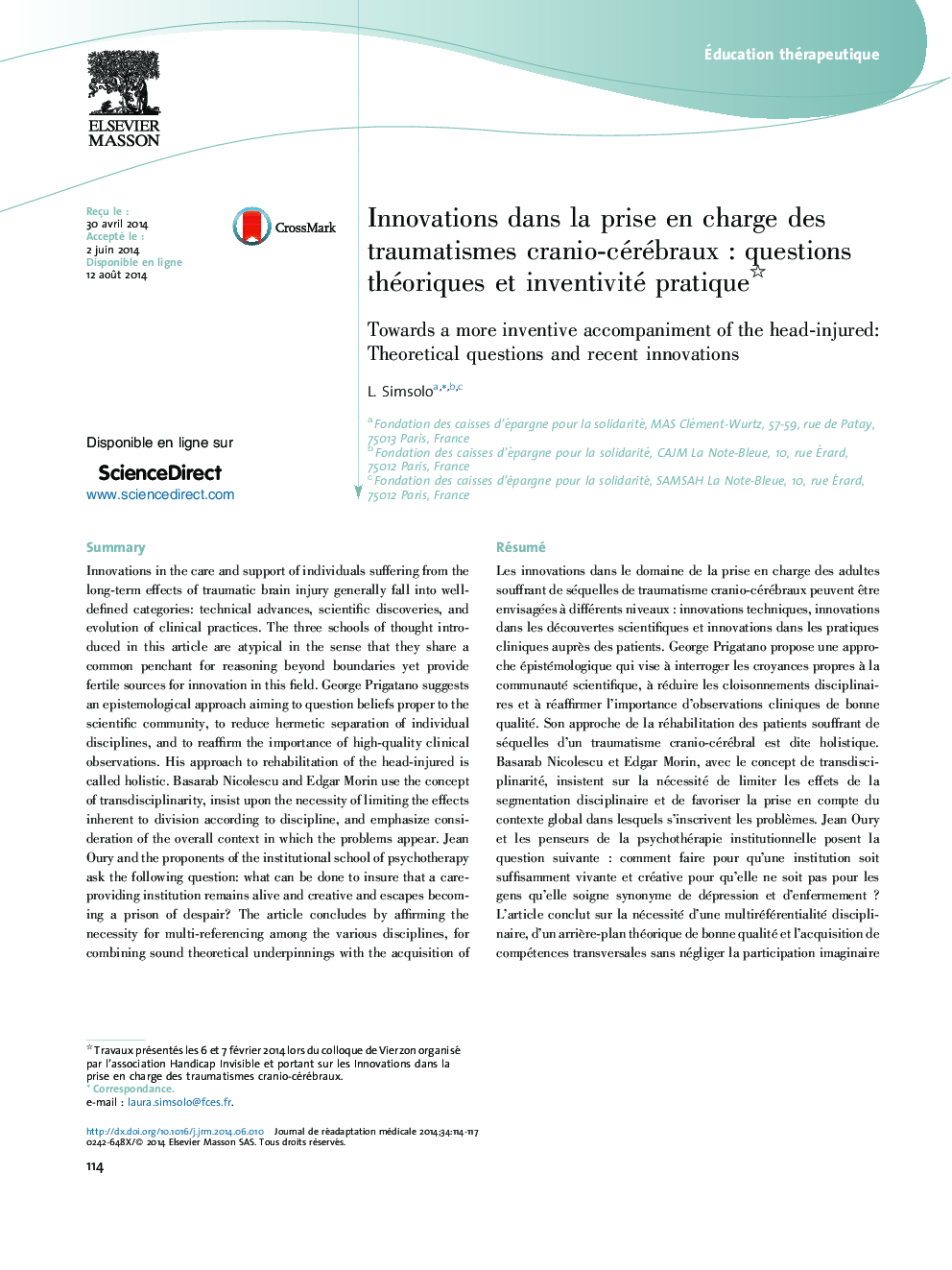| Article ID | Journal | Published Year | Pages | File Type |
|---|---|---|---|---|
| 2703506 | Journal de Réadaptation Médicale : Pratique et Formation en Médecine Physique et de Réadaptation | 2014 | 4 Pages |
Abstract
Innovations in the care and support of individuals suffering from the long-term effects of traumatic brain injury generally fall into well-defined categories: technical advances, scientific discoveries, and evolution of clinical practices. The three schools of thought introduced in this article are atypical in the sense that they share a common penchant for reasoning beyond boundaries yet provide fertile sources for innovation in this field. George Prigatano suggests an epistemological approach aiming to question beliefs proper to the scientific community, to reduce hermetic separation of individual disciplines, and to reaffirm the importance of high-quality clinical observations. His approach to rehabilitation of the head-injured is called holistic. Basarab Nicolescu and Edgar Morin use the concept of transdisciplinarity, insist upon the necessity of limiting the effects inherent to division according to discipline, and emphasize consideration of the overall context in which the problems appear. Jean Oury and the proponents of the institutional school of psychotherapy ask the following question: what can be done to insure that a care-providing institution remains alive and creative and escapes becoming a prison of despair? The article concludes by affirming the necessity for multi-referencing among the various disciplines, for combining sound theoretical underpinnings with the acquisition of transversal skills with plenty of imagination factored in and attention paid to the functions of the ideal in both the institution and the relationship of the caregiver to the care-receiver.
Keywords
Related Topics
Health Sciences
Medicine and Dentistry
Orthopedics, Sports Medicine and Rehabilitation
Authors
L. Simsolo,
